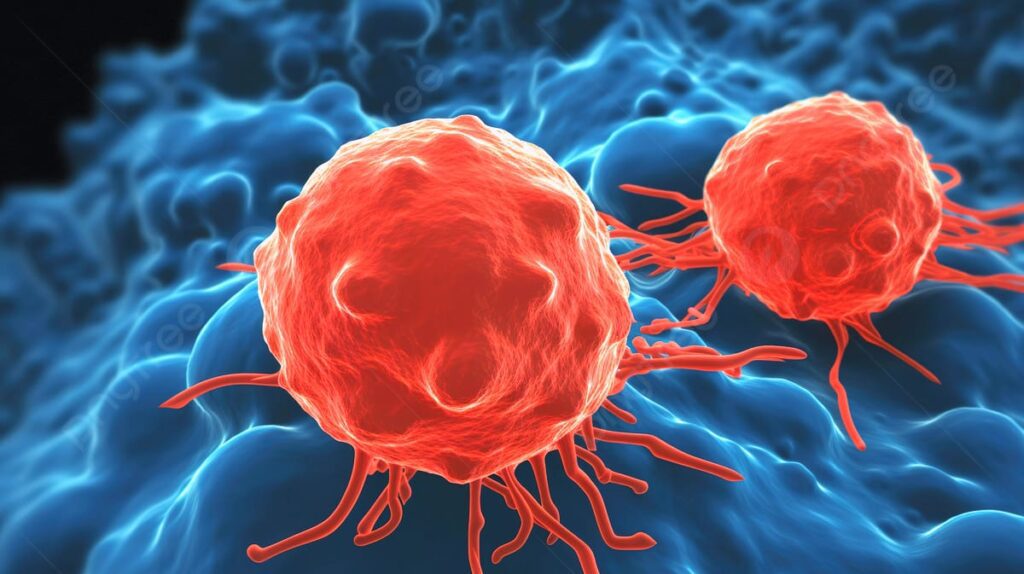A groundbreaking study led by the Garvan Institute of Medical Research, in collaboration with Rockefeller University and Kyoto University, sheds light on the intricate workings of checkpoint inhibitors, a transformative cancer immunotherapy. The findings unravel a critical connection between these treatments and their unintended impact on immune system components, opening new pathways for fine-tuning cancer care.

How Checkpoint Inhibitors Work
Checkpoint inhibitors are a type of immunotherapy that enhances the immune system’s ability to target and destroy cancer cells. They achieve this by blocking proteins like PD-1 (programmed cell death protein 1) and PD-L1 (its binding partner), which act as “brakes” to prevent overactivation of T cells. By releasing these brakes, T cells can mount a more robust response against tumors.
While this approach has revolutionized cancer treatment, it comes with trade-offs. Around 20% of patients undergoing checkpoint inhibitor therapy experience an increased susceptibility to common infections, an issue that until now remained poorly understood.
The Discovery: Impacts on B Cell Immunity
The study delved into how checkpoint inhibitors influence B cells, the immune system’s key players responsible for producing antibodies that protect against pathogens. The researchers found that while PD-1 inhibition boosts anti-tumor immunity, it simultaneously disrupts B cell function, leading to reduced antibody diversity and quality.
Key Findings:
- Reduced Memory B Cells:
Patients with genetic deficiencies in PD-1 or PD-L1 exhibited fewer memory B cells, which are vital for remembering past infections and mounting a defense against future threats. - Weakened Antibody Response:
These deficiencies resulted in diminished antibody diversity, impairing the immune system’s ability to effectively combat common infections such as viruses and bacteria. - Animal Model Insights:
Similar effects were observed in animal models lacking PD-1 signaling, further validating the findings.
“PD-1 inhibition has a ‘yin and yang’ nature,” explains Dr. Kenji Chamoto of Kyoto University. “It activates anti-tumor immunity but simultaneously impairs B cell-mediated immunity.”
Practical Implications for Cancer Patients
The insights from this study emphasize the need for clinicians to monitor the immune function of patients undergoing checkpoint inhibitor therapy. Monitoring B cell health could identify individuals at higher risk of infections and enable timely interventions.
Preventative Measures:
One proposed solution is immunoglobulin replacement therapy (IgRT). Already used to treat immunodeficient patients, IgRT could help replace missing antibodies in cancer patients with weakened B cell immunity, reducing the risk of infections.
“This preventative approach could mitigate the trade-offs of checkpoint inhibitor therapy,” says Dr. Stéphanie Boisson-Dupuis from Rockefeller University.
Rare Genetic Conditions Offering Broader Insights
The study also highlights the value of researching rare genetic conditions like PD-1 or PD-L1 deficiency. These conditions offer a unique lens to understand immune system mechanisms and their manipulation in cancer treatment.
Bridging Genomics and Cancer Care:
By studying these rare cases, researchers uncovered fundamental insights into the interplay between cancer therapies and immune responses. These findings are expected to guide future refinements in checkpoint inhibitor treatments, ensuring that patients benefit from powerful anti-cancer effects without compromising their ability to fight infections.
Research Directions for the Future
Building on these findings, researchers plan to explore ways to:
- Refine checkpoint inhibitor treatments to balance anti-cancer efficacy with immune system preservation.
- Investigate additional strategies to protect immune function in cancer patients, enhancing overall treatment outcomes.
“This research is a testament to the power of collaboration across immunology, genomics, and cancer care,” says Professor Stuart Tangye of the Garvan Institute. “It underscores the potential for science to evolve treatments that maximize benefits while minimizing harm.”
